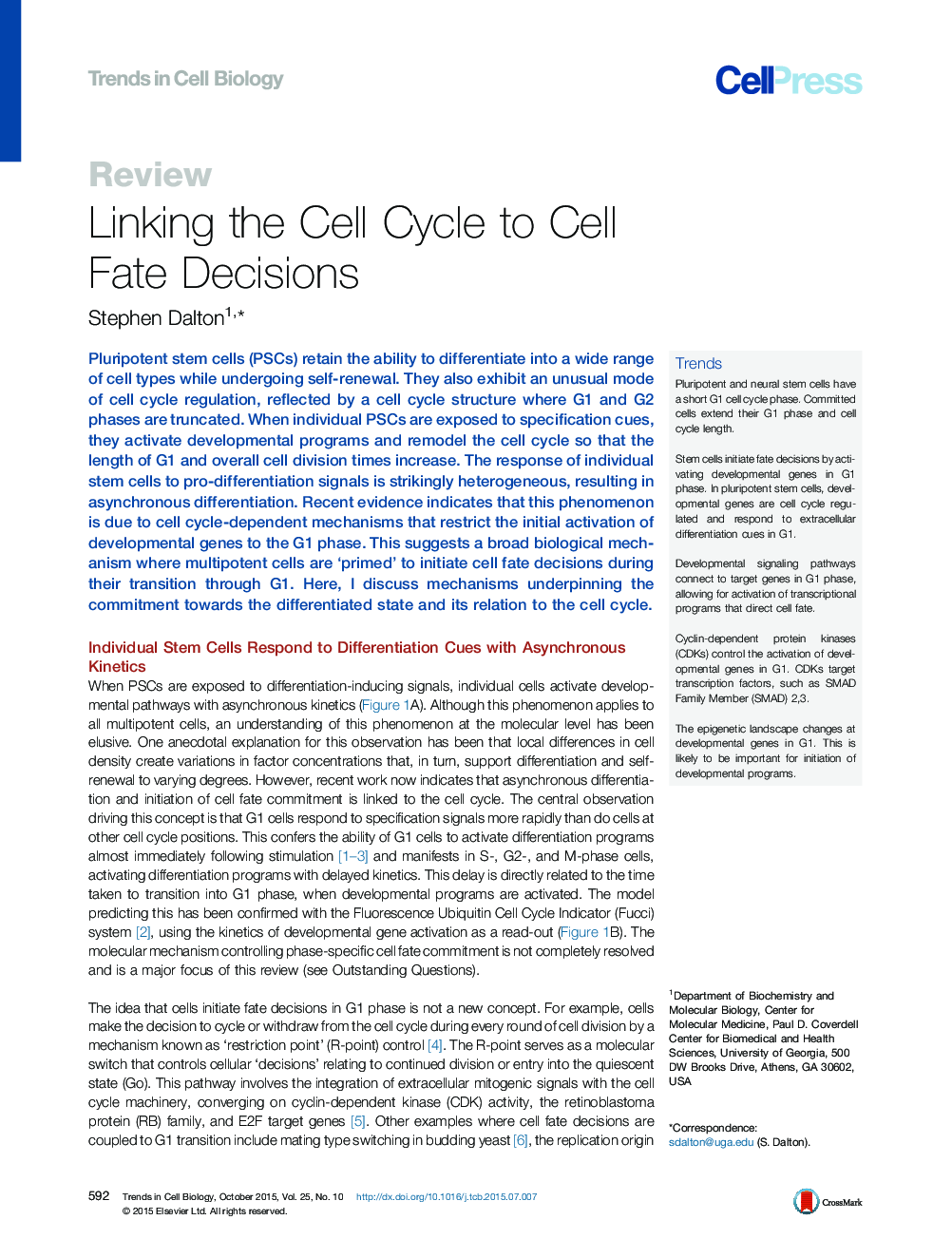| کد مقاله | کد نشریه | سال انتشار | مقاله انگلیسی | نسخه تمام متن |
|---|---|---|---|---|
| 2204302 | 1100767 | 2015 | 9 صفحه PDF | دانلود رایگان |
Pluripotent stem cells (PSCs) retain the ability to differentiate into a wide range of cell types while undergoing self-renewal. They also exhibit an unusual mode of cell cycle regulation, reflected by a cell cycle structure where G1 and G2 phases are truncated. When individual PSCs are exposed to specification cues, they activate developmental programs and remodel the cell cycle so that the length of G1 and overall cell division times increase. The response of individual stem cells to pro-differentiation signals is strikingly heterogeneous, resulting in asynchronous differentiation. Recent evidence indicates that this phenomenon is due to cell cycle-dependent mechanisms that restrict the initial activation of developmental genes to the G1 phase. This suggests a broad biological mechanism where multipotent cells are ‘primed’ to initiate cell fate decisions during their transition through G1. Here, I discuss mechanisms underpinning the commitment towards the differentiated state and its relation to the cell cycle.
TrendsPluripotent and neural stem cells have a short G1 cell cycle phase. Committed cells extend their G1 phase and cell cycle length.Stem cells initiate fate decisions by activating developmental genes in G1 phase. In pluripotent stem cells, developmental genes are cell cycle regulated and respond to extracellular differentiation cues in G1.Developmental signaling pathways connect to target genes in G1 phase, allowing for activation of transcriptional programs that direct cell fate.Cyclin-dependent protein kinases (CDKs) control the activation of developmental genes in G1. CDKs target transcription factors, such as SMAD Family Member (SMAD) 2,3.The epigenetic landscape changes at developmental genes in G1. This is likely to be important for initiation of developmental programs.
Journal: - Volume 25, Issue 10, October 2015, Pages 592–600
